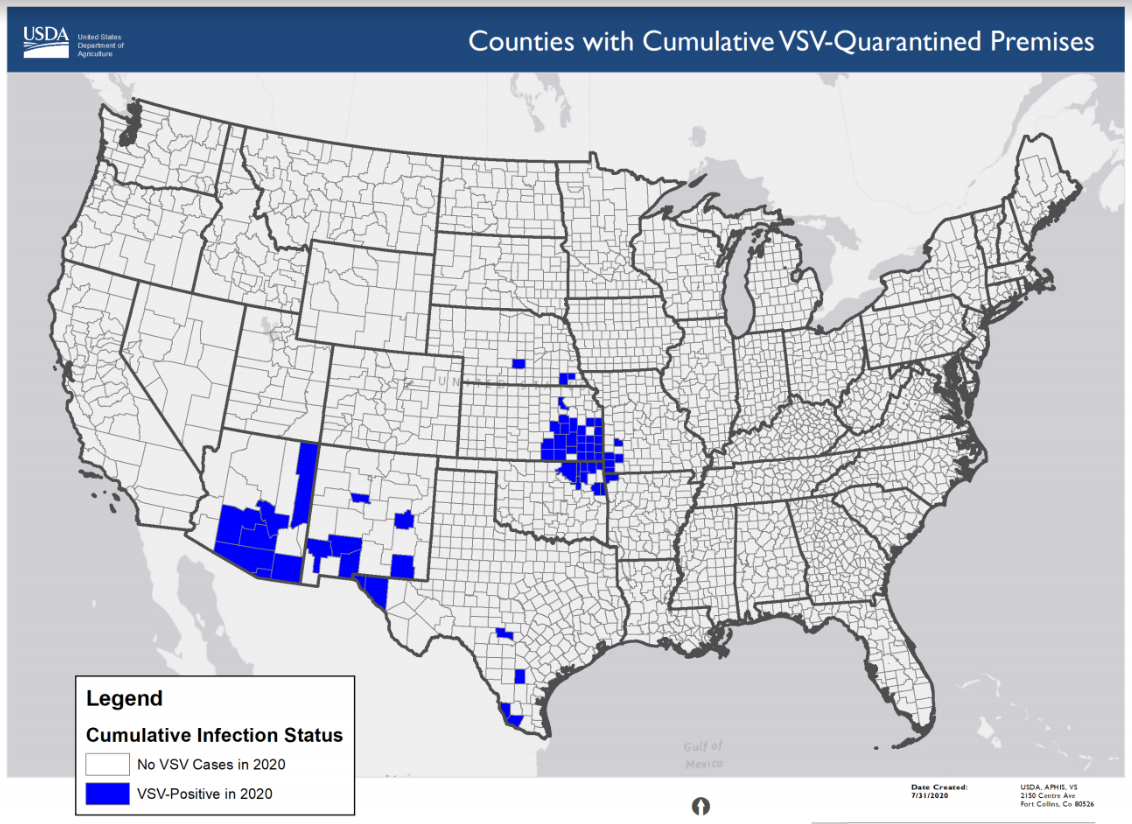
31 Jul VSV confirmed in bordering states — but not Colorado yet
The following was released by the Colorado State Veterinarian’s Office on July 31, 2020.
The 2020 VSV outbreak began on April 13, 2020, when the National Veterinary Services Laboratories (NVSL) in Ames, Iowa confirmed the first VSV-positive premises in Dona Ana County, New Mexico. Arizona, Texas, Kansas, Nebraska, Oklahoma, Missouri, and Arkansas subsequently broke with VSV cases which were confirmed by NVSL on April 22, 2020 (Cochise County, Arizona), April 23, 2020 (Starr County, Texas), June 16, 2020 (Butler County, Kansas), June 24, 2020 (Buffalo County, Nebraska), July 7, 2020 (Washington County, Oklahoma), July 13, 2020 (Newton County, Missouri), and July 27, 2020 (Benton County, Arkansas).
Since the start of the outbreak, 287 VSV-affected premises have been identified (181 confirmed positive, 106 suspect). Two hundred seventy-six (276) of these premises had only equine species clinically affected, 10 premises had clinically affected cattle (McMullen, Starr, and Zapata Counties, Texas; Butler, Cowley, Marion, and Montgomery Counties, Kansas), and 1 premises had both equine species and cattle clinically affected (Cedar County, Missouri).
Please see the USDA APHIS Veterinary Services website to read the current situation report for all confirmed cases in the U.S.
What Colorado veterinarians need to know
While there have been no cases of VSV in Colorado this year, these cases in bordering states indicate that we could see cases in Colorado during the vector season.
At this time in Colorado all suspect VSV cases in horses and livestock must be investigated by state or federal animal health officials until Colorado has an index VSV case.
Any vesicular disease of livestock and horses is reportable to the State Veterinarian’s Office in Colorado. Report any cases that have clinical signs suggestive of vesicular stomatitis virus (VSV) immediately by calling 303-869-9130. If it is after hours, the office voice message will indicate which staff veterinarian is on call.
Veterinarians may also contact the state or federal field veterinarian in your area.
Additional resources


